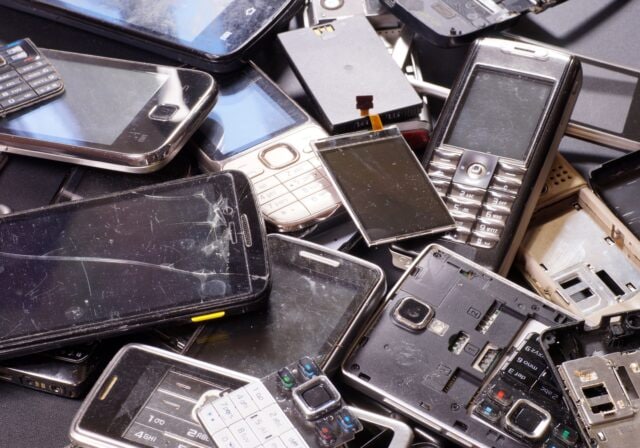Our once-beloved cell phones often find themselves relegated to forgotten drawers or discarded in the trash. But did you know recycling these old devices could significantly impact our environment? Let's explore the importance of recycling old cell phones and the benefits it brings.
Precious Metals and Environmental Impact
When cell phones are tossed into landfills, valuable materials are squandered—gold, silver, and rare earth metals—that could be repurposed. These metals play a crucial role in manufacturing new devices, and their extraction takes a toll on our planet. Moreover, toxic substances like lead and mercury lurk within our phones, posing a threat to our delicate ecosystems.
Benefits of Recycling
Recycling cell phones isn't just a feel-good gesture; they are a pragmatic solution. Here's why:
Resource Conservation
When you recycle a cell phone, you are participating in a silent revolution that conserves our planet's finite resources. Here's how:
- Materials Reuse: Imagine a phone's circuit board. It contains traces of gold, silver, and tantalum—precious metals mined from the Earth's crust. Recycling allows us to extract these materials from discarded phones, reducing the need for fresh mining. Reusing existing resources alleviates the strain on ecosystems and preserves natural habitats.
- Energy Savings: Manufacturing a new phone demands a lot of energy. The process consumes fossil fuels, from mining raw materials to assembling components, and emits greenhouse gases. Recycling circumvents this energy-intensive cycle. When we recycle, we save energy that is equivalent to producing a new phone from scratch. It's a small but significant step toward a greener future.
Pollution Reduction
Our sleek smartphones harbor a hidden menace: toxic substances.
E-Waste Hazards
- Electronic Waste (E-Waste): This term refers to discarded electronic devices like cell phones, laptops, and smartwatches that people throw away. When these items are dumped in big piles of trash, they can harm the environment. When these devices end up in landfills, they pose environmental risks.
- Heavy Metals: E-waste contains heavy metals such as lead, mercury, and cadmium. These metals are toxic and can harm ecosystems and human health.
Responsible recycling ensures that these hazardous materials are properly managed, preventing their harmful impact.
Air and Water Quality
- Burning E-Waste: When electronic waste is burned, harmful substances are released into the air. These emissions contribute to air pollution.
- Air Pollution: The quality of the air we breathe is affected by these emissions. Proper recycling diverts e-waste away from incineration, safeguarding air quality.
- Landfill Impact: Additionally, landfills—where discarded phones often end up—can contaminate groundwater. Responsible recycling helps protect our water sources, too.
Preparing Your Phone for Recycling
Let's get practical. Before you bid farewell to your trusty phone, follow these essential steps:
Data Transfer
- Safeguard your memories by transferring data to a new device. Back up contacts, photos, and cherished moments.
- Don't leave a digital trail: Erase all personal data and perform a factory reset, leaving no trace of your digital life.
SIM Card and Battery Removal
- Pop out the SIM card: Prevent accidental activation.
- Battery matters: If your phone has a removable battery (typical in older models), remove it. Lithium-ion batteries require special handling.
How to Recycle Your Old Cell Phone
What can I do with my old T-Mobile phone?
You have several options for your cell phone:
- Trade-In: Check the trade-in value of your phone and consider trading it in for credit toward a new 5G device. You can do this at a T-Mobile store or online.
- Recycle: You can bring your old phone, batteries, tablets, and netbooks to a T-Mobile store in the United States or Puerto Rico for free recycling. T-Mobile will recycle your devices for free.
Can I donate old mobile phones to T-Mobile?
Absolutely! You can bring your cell phone (any make, model, or carrier), batteries, tablets, and netbooks to a T-Mobile store in the United States and Puerto Rico.
Which items are eligible for T-Mobile's recycling program?
T-Mobile's recycling program accepts various items, including:
- Handsets
- Chargers
- Accessories
- Nickel cadmium (NiCd) batteries
- Lithium-ion batteries
- Small sealed lead acid (SSLA) batteries
- Nickel-metal hydride (NiMH) batteries
Legal Considerations and State Laws
Compliance isn't just legalese; it's our collective responsibility. Here's how you can navigate the legal maze:
- Know Your State's Rules: Visit your state's environmental agency website. Familiarize yourself with e-waste regulations.
- Search by Device: Some states ban specific devices (e.g., CRTs, rechargeable batteries). Ensure you comply.
- Spread the Word: Educate friends, family, and colleagues. Let them know about responsible recycling options.
- Advocate for Change: Support legislation that promotes responsible e-waste management.
Addressing Common Concerns
Security
- Data Security: Recycling programs take data security seriously. When you recycle your phone, rest assured that your personal information won't be compromised. Before recycling, devices undergo thorough data wiping processes to protect your privacy.
Environmental Impact
- Every Recycled Phone Counts: It's easy to underestimate the impact of recycling a single phone. But consider this: Each recycled device contributes to resource conservation, pollution reduction, and a healthier planet. Spread the word—encourage others to recycle their old phones too. Together, we make a difference.
It's simple. Recycling old cell phones allows us to weave a sustainable thread into our planet's fabric—one phone at a time.
